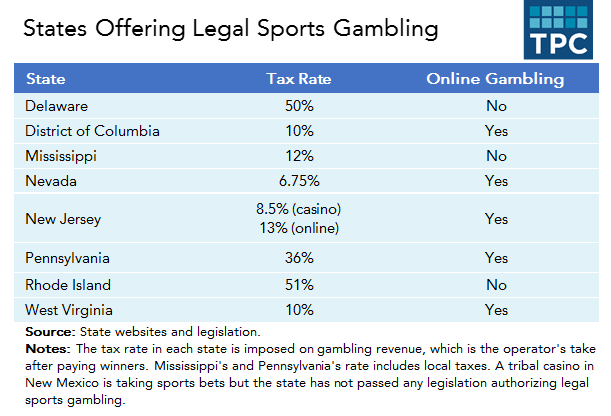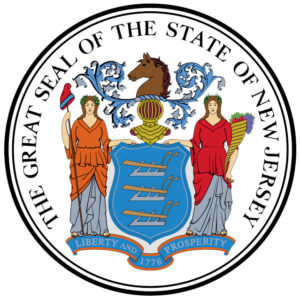When Was Gambling Legalized In New Jersey
New Jersey gambling is full of rich history; some of it was legal, much of it not. Atlantic City casinos became legal in 1976, with illegal gambling activities before that. The other forms of legalized gambling in New Jersey are racing, a state lottery, and charitable games. New Jersey became the third state to legalize online poker in 2013. In 1976, legalized casino gaming was approved by the citizens of New Jersey as a unique tool of urban redevelopment for Atlantic City. In 1977, the New Jersey Casino Control Act (the “Act”) was signed into law. It declared that the rehabilitation and redevelopment of existing tourist and convention facilities in Atlantic City, and the fostering and encouragement of new construction and the replacement of lost.
New Jersey's mission for legal online gambling legislation has traveled down a long and winding road. The state has been the main contender in the fight with the federal government to allow states to decide on whether they want to allow legal online gambling.
With New Jersey's prominent gambling history, it's hard to imagine that this state didn't legalize online gambling until quite recently. To discuss the issue of legal online gambling in the US, one first must visit the history of the Federal Wire Act and why it exists in the first place.
Read below to find out how New Jersey was victorious in the case for legal online casinos and to see how you can get in on the action.
1 day ago And cryptocurrency is not legal for online gambling in New Jersey; any site that accepts it is automatically an illegal site, according to the campaign. Conscious Gaming is an independent group created by GeoComply, whose technology is widely used in the online gambling industry to verify the physical location of a gambler to comply with state. New Jersey State administrators passed bills to legalize racetrack betting in 1939, charity gambling like bingo and other games in churches were legalized in 1953, and amusement games were legalized in 1959. New Jersey voted in favor of lotteries in 1970, when the New Jersey Lottery was created.
When Was Gambling Legalized In New Jersey Primary
Casino Licensing
Licenses for NJ casinos are submitted through Atlantic City casinos. The law grants the land-based casinos in New Jersey the right to apply for a permit to start a legal online gaming site through partnerships with iGaming providers or operators.
The three types of licenses available are as follows:
- Casino Service Industry Enterprise License - This license is for software providers for land-based companies, as well as companies that provide lists of gambling players.
- Vendor Registrants License - This license pertains to online gambling service providers
- Ancillary Casino Service Industry Enterprise License - This license deals with companies providing services such as payment processing, geolocation, age verification, and customer identity. It also includes junket operators and affiliates.
On the 26th of February in 2013, the New Jersey legislature passed the new bill, legalizing online gambling. Senator Ray Lesniak had pushed the bill as a way to stimulate the Atlantic City economy, which was seemingly failing. Chris Christie signed the bill into law, with expectations of welcoming financial benefits to the state. And boy was he right.
Atlantic City and Online Casinos
Atlantic City has been known as the 'Las Vegas of the East' for nearly a hundred years now. Yet unlike Las Vegas casinos - which have been antagonistic toward legalizing online gambling - Atlantic City casinos saw the opportunity that awaited them by embracing the online market.
Now, an online presence can rescue land-based casinos. The best case-in-point is the Golden Nugget. Their physical casino has consistently lost money for seven years, but Golden Nugget's online casino is the most financially successful operator in the U.S.
When Did Online Gambling Become Legal In Nj

Since New Jersey state law requires that all online casinos have a partnership with a land-based casino, some Atlantic City casinos have formed legal partnerships with well-known European operators, such as 888 's partnership with Caesars casino.
The path to legalization had to do with the challenge of overcoming what had been a rather unimportant piece of legislature: the Interstate Wire Act of 1961.
Introducing the Wire Act

The Federal Wire Act - otherwise known as the Interstate Wire Act of 1961 - was put in place to restrict betting companies’ information from being transmitted across state lines via wire communications. This legislation was originally established to put an end to organized crime through interstate gambling. However, at the time this law was created, online gambling did not yet exist.
In modern society, our everyday life requires the use of the internet which relies on interstate wire communications. Therefore, this law has some jurisdiction over online gambling.
In 2006, The US Department of Justice (DOJ) went even further and passed the Unlawful Gambling Enforcement Act (UIGEA), which restricted banks from processing transactions from online gambling operators outside of the US. This law effectively pushed out major online gambling companies through threats of money laundering and illegal gambling charges. Many of the best online poker sites for US players were pushed out of the country because of this legislation - including PokerStars, a prominent name in the industry.
When Was Gambling Legalized In New Jersey State
At the start of 2010, a bill was introduced by Senator Ray Lesniak, which would allow casinos in Atlantic City to operate online casinos in the state. Lesniak's bill passed the Senate with widespread support. It passed with a 29 to 5 margin. However, when the bill ended up on Governor Chris Christie's desk, it was vetoed and suspected to have been turned down due to political motivation.
Later the DOJ released a re-modification of the Federal Wire Act, hence stating that interstate transmission of wire communication which had no relation to sports betting, would not pertain to this law. This new version of the Federal Wire Act, passed in 2011, excluded online poker from its limitations, therefore making it possible for states to pass their own legislation regarding the activity.
The following year, Chris Christie changed his stance on online gambling. Senator Lesniak introduced a new online gambling bill to cater to Christie's concerns. In December of 2012, the bill passed the state Assembly and it moved on to the Senate. The bill passed the Senate with a 33 to 3 margin. After a few amendments and revisions, the bill was finally signed into law on February 26, 2013.
The first online casino to gain a license in New Jersey was Caesars which started the process by April of 2013.
When Was Gambling Legalized In New Jersey Legal
Legal Online Poker in NJ
When the Federal Wire Act was re-evaluated and excluded all forms of online gambling outside of sports betting, this excused online poker, allowing the activity to be legalized and regulated by state law.
Four states proceeded to pass legislation creating laws around regulated, legal online poker. Out of those four, three signed agreements to share online gambling pools. As a result, it is not strictly illegal to play poker online for money within the United States, however, it is crucially important to abide by the individual state laws surrounding the matter.
Moving forward with legal online poker meant new legislation for those states.
Delaware passed the Delaware Gaming Competitiveness Act in 2012, allowing for the legalization of online casino games - including online poker. Nevada followed the lead with the authorization of online poker licenses in 2013, as they launched the first-ever legal, regulated online poker site in the US.
New Jersey then introduced online gambling, passing legislation for the regulation of online gambling activities. Atlantic City casinos could operate NJ online casino sites along with legal online poker sites.
A few years later in 2017, Pennsylvania became the fourth state to legalize online poker in the US, beginning the process of legalization and regulatory matters for online poker sites.
As of 2019, there are over 20 casinos that now offer or have licenses for online gambling in New Jersey. The mammoth Parx casino, with its physical location in Pennsylvania, is the latest to join in on the action.
The Online Gambling Race
Now that online poker, legal online casino sites, and legal online sports betting are monitored and regulated in the Garden State, casinos and racetracks are racing to launch their own websites and mobile casinos.
As the economy grows, so does the competition. And competition among legal online casinos is great news for you. Casinos are trying to attract new customers with special bonuses and deals for first-time deposits. Have a look to see what might be a good fit for you.
Additional states are joining in on the legalization of online casinos - with West Virginia and Michigan being the latest to legalize online gambling. Of course we're proud to say that New Jersey is leading the pack in terms of numbers of legal online casinos, variety of games, and best bonuses for new and existing customers.

It now depends upon individual states to decide whether online casinos will be legal within their boundaries. Seeing the success of New Jersey, it's become increasingly difficult to step away from this table.
Casino Gaming in New Jersey
In 1976, legalized casino gaming was approved by the citizens of New Jersey as a unique tool of urban redevelopment for Atlantic City.
In 1977, the New Jersey Casino Control Act (the “Act”) was signed into law. It declared that the rehabilitation and redevelopment of existing tourist and convention facilities in Atlantic City, and the fostering and encouragement of new construction and the replacement of lost convention, tourist, entertainment and cultural centers in Atlantic City, will offer a unique opportunity to make maximum use of the natural resources available in Atlantic City for the expansion and encouragement of New Jersey's hospitality industry, and to that end, the restoration of Atlantic City as the Playground of the World and the major hospitality center of the Eastern United States.
The Act further declared that restricting the issuance of casino licenses to major hotel and convention facilities is designed to assure that the existing nature and tone of the hospitality industry in New Jersey and in Atlantic City is preserved, and that the casino rooms are always offered and maintained as an integral element of such hospitality facilities, rather than as the industry unto themselves that they have become in other jurisdictions.
An integral and essential element of the regulation and control of such casino facilities by the State rests in the public confidence and trust in the credibility and integrity of the regulatory process and of casino operations. To further such public confidence and trust, the State extends strict regulation to all persons, locations, practices and associations related to the operation of licensed casino enterprises and all related service industries. Comprehensive law enforcement supervision attendant thereto, is further designed to contribute to the public confidence and trust in the efficacy and integrity of the regulatory process.
The Act is designed to engender and maintain public confidence and trust in the regulation of the licensed enterprises, to provide an effective method of rebuilding and redeveloping existing facilities and of encouraging new capital investment in Atlantic City, and to provide a meaningful and permanent contribution to the economic viability of the resort, convention, and tourist industry of New Jersey. (Excerpted from the Casino Control Act, N.J.S.A. 5:12-1.)
Read about the history of the Commission.